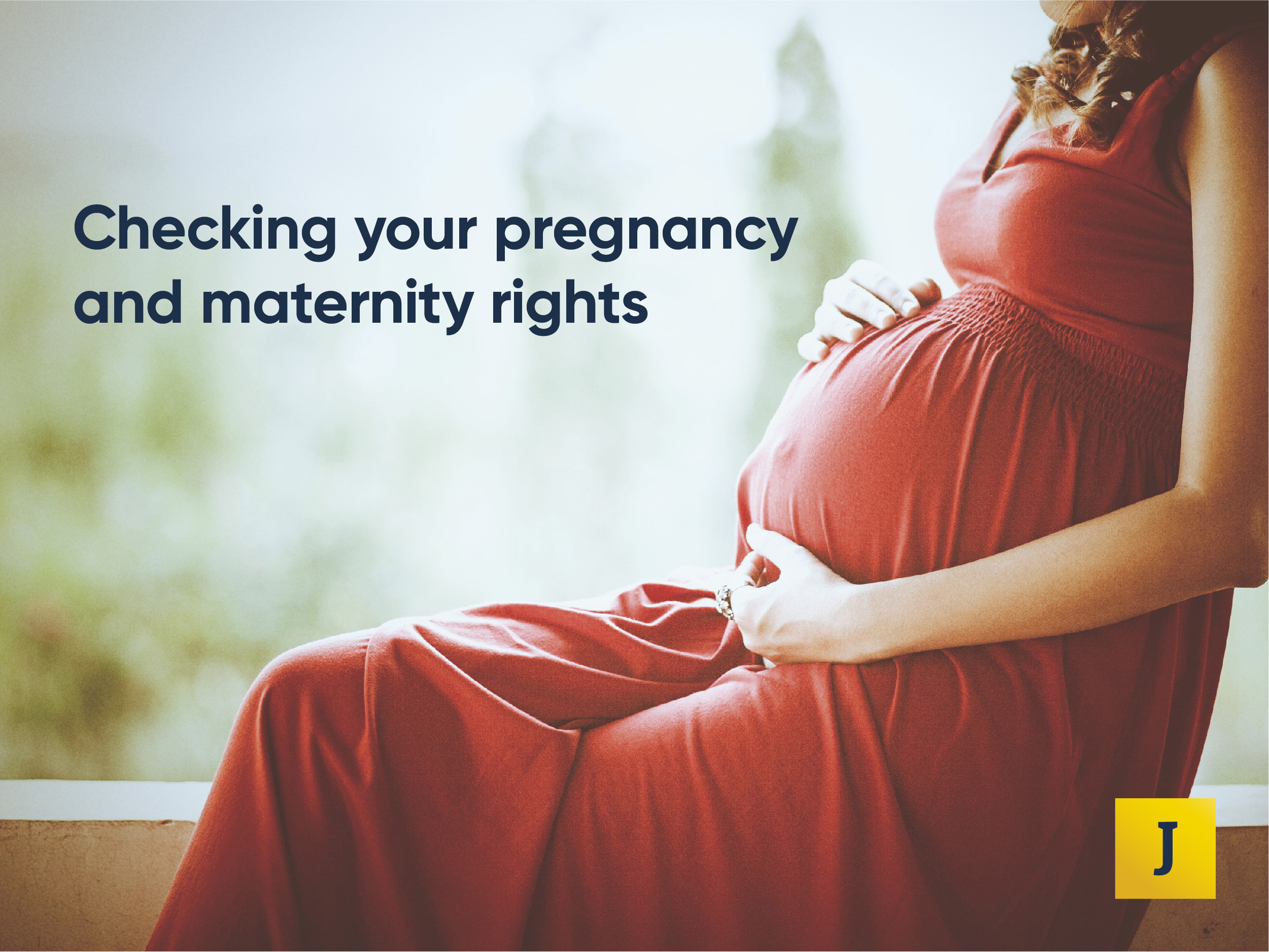When a new child is joining your family, both parents have specific parental rights both before and after the birth or adoption. Here we look at what those rights are, and what to do if you feel you are being discriminated against.
Parental right have been specifically put in place to ensure that both of you can focus on your parental responsibilities without the fear of discrimination, and be able to return to work when you’re ready. Your rights are enshrined in law, so any organisation that breaks these rules open themselves up to legal action.
Maternity rights are also applicable for adoption or surrogacy, but are only available to one parent. The other parent can apply for Paternity Pay and Leave – regardless of gender.
Both parents’ employment rights are protected when on leave – including their right to pay rises, their right to accrue holiday, and their right to return to work after their leave.
What are my maternity rights?
There are four main legal rights that all pregnant employees are entitled to from their employers.
You are entitled to paid time off for antenatal care – this includes medical appointments, as well as antenatal and parenting classes. The time you spend attending these appointments should count towards your worked hours, and you are not required to make up any missed time.
You are entitled to Maternity Leave, and Maternity Pay or Maternity Allowance, depending on how long you have worked at the organisation.
You are legally protected against unfair treatment, discrimination or dismissal. Your employer must assess the risks to you and your baby that could be caused by your work environment, and take reasonable steps to remove them. If this is not possible, you should be offered suitable alternative work, or suspended on full pay.
If you are concerned that you may have been discriminated against by your employer because you are pregnant, you may wish to get advice from a Family Law Solicitor on what to do next.
How much Maternity Leave am I entitled to?
If you’re pregnant, you are entitled to up to 52 weeks of Statutory Maternity Leave – 26 weeks of Ordinary Maternity Leave and 26 weeks of Additional Maternity Leave. You can decide how much of this leave you wish to take based on your circumstances, but you must take at least 2 weeks’ leave after giving birth (or longer in some instances – for example, if you work in a very physical job such as factory work).
You can start your Maternity Leave from ‘11 weeks before the expected week of childbirth’ – this is around month 7 of your pregnancy. You need to inform your employer that you are pregnant at least 15 weeks before the due date, so that you can let them know when you want to begin your Maternity Leave.
How much Maternity Pay will I receive?
You may be entitled to Statutory Maternity Pay (SMP), plus any additional Maternity Pay that your employer offers.
SMP is paid for up to 39 weeks, and consists of:
- 90% of your average weekly earnings (before tax) for 6 weeks, and then;
- £151.97 or 90% of your average weekly earnings (whichever is lower) for the remaining 33 weeks.
SMP is paid by your employer, is subject to Tax and National Insurance payments, and will show on your payslip in the same way your salary would.
To qualify for SMP, you must have worked for the same employer for at least 26 weeks by the ‘15th week before the baby is due’. This generally works out to mean that you must have been working at the company when you fell pregnant.
What are Paternity Rights and Shared Parental Leave?
Paternity rights are currently quite different. If your partner is having a baby, or you are adopting or having a baby through a surrogacy arrangement, you may be eligible for 1-2 weeks’ paid Paternity Leave, beginning the day the child is born or placed with you for adoption.
Similar to Maternity Pay, if you have been employed by the same employer for 26 weeks up to ‘the end of the 15th week before the due date’, you will be entitled to Paternity Pay of either £151.97 per week, or 90% of your average weekly earnings – whichever is lower.
More recently, the UK Government has made Shared Parental Leave an option for parents who wish to split the allowed leave. You can share up to 50 weeks of leave and up to 37 weeks of pay between you in the first year after your child is born or placed with your family. It can be split into blocks of leave separated by work, or taken in one go. SPL is the most flexible option when it comes to Parental Leave.
We can advise new parents and parents-to-be on their specific rights to; leave, pay and in respect of their employer’s legal obligations whilst they are pregnant and/or on maternity/ paternity leave.
I think I’m being discriminated against because of my pregnancy – what now?
If you feel your employer is in breach of any of the above legal requirements, you may be being discriminated against due to your pregnancy or impending adoption.
Whether you feel you’ve been dismissed unfairly, or you aren’t getting the time off you’re entitled to, get in touch – we can advise on discrimination, as well as act on behalf of claimants in Employment Tribunal-related matters.
Please contact our Employment Law Team by emailing employment@jefferieslaw.co.uk or call 01702 332 311 and one of our solicitors will be in touch.
The contents of this article are for the purposes of general awareness only. They do not purport to constitute legal or professional advice. The law may have changed since this article was published. Readers should not act on the basis of the information included and should take appropriate professional advice upon their own particular circumstances.
